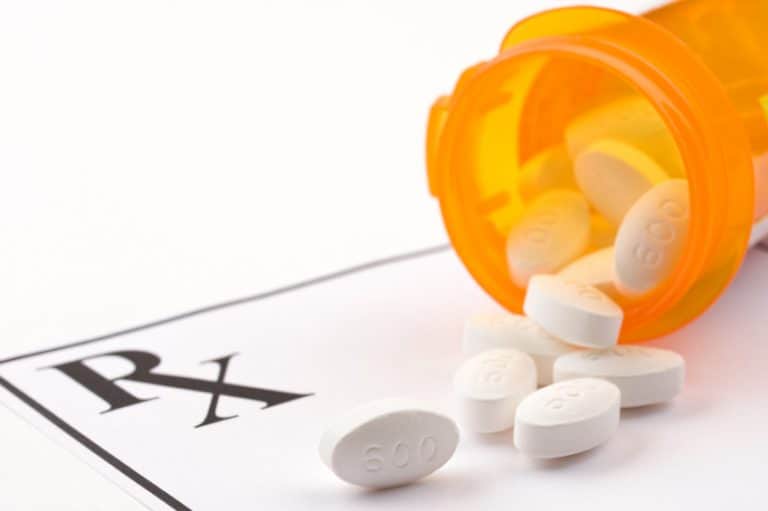Doxycycline (DOX i SYE kleen)
Doxycycline for prostatitis is a tetracycline antibiotic used to treat bacterial infections.
Doxycycline Warnings
Doxycycline and other tetracycline drugs used during tooth development may result in permanent staining of teeth.
Use of doxycycline and other antibacterial medications may be associated with diarrhea ranging from mild to fatal colitis.
Use of this medication and other antibiotics may cause excessive growth of fungi and other organisms. If an infection occurs as a result of this medication, stop taking doxycycline and seek appropriate medical attention.
If taking this medication for a long period of time, your physician should monitor your hematopoietic, kidney, and liver functioning.
Do not take this medication to treat a viral infection, as it is unnecessary and will not work to clear the infection. It should only be used to treat bacterial infection.
Overuse of this medication may lead to a decrease in effectiveness of doxycycline working to fight infection in your body.
Doxycycline may interact with Coumadin, causing extreme thinning of the blood. Before taking doxycycline, if you take Coumadin, you may need to reduce your dose. Discuss this with your doctor.
Dilantin (phenytoin), Tegretol (carbamazepine), and barbiturates may augment the metabolism of this drug, rendering it less effective.
Use of this drug in elderly patients should be monitored cautiously. Elderly patients should take a low dose of this drug to decrease the risk of side effects.
Why Is Doxycycline Prescribed for Prostatitis?
Doxycycline for prostatitis is the most common tetracycline used to treat acute/chronic bacterial prostatitis to rid the body of infection.
How Should Doxycycline Be Used?
This medication comes in 50 mg, 75 mg, 100 mg, and 150 mg tablets, as well as capsules that are in 40 mg, 50 mg, 75 mg, and 100 mg doses. Suspension is 25 mg/5ml. Syrup is 50 mg/ml. Powder for injection comes in 42.5 mg, 100 mg, and 200 mg.
The oral doxycycline standard adult dose for infection is 200 mg total the first day of treatment, then 100 mg per day total on subsequent days.
Take doxycycline orally on an empty stomach at least one hour prior or two hours following a meal. Take doxycycline with a full 8 oz. glass of water, unless your physician instructs you otherwise.
This medication is usually taken once or twice each day for one to two weeks. Follow your physician’s instructions regarding dose.
If you experience an upset stomach when taking this medication, you may take it with food or milk. However, doxycycline may not be as effective if taken with food or milk. Discuss this issue with your physician.
After taking doxycycline, do not lie down for 10 minutes.
Take this drug two to three hours before or after using any products that contain aluminum, calcium, iron, magnesium, zinc, or bismuth subsalicylate. These products act to prevent the body from absorbing doxycycline.
This medication is usually taken once each day when taken to prevent malaria. The first dose is typically taken one to two days before travel and continued for four weeks after travel is completed. If unable to finish a full course of this medication, inform your physician.
If using this medication in liquid form, shake well before each dose. Measure the dose carefully.
Dose and length of treatment are based on medical condition and response to treatment.
Take doxycycline at regular intervals to increase its effectiveness.
Take the prescribed amount of this medication until it is finished. Do not stop taking the medication if symptoms disappear after a few days. If you stop taking the medication before you finish with the full prescription, the infection may return.
If your symptoms persist or worsen, inform your physician.
Other Uses for Doxycycline
Doxycycline is used to treat bacterial infections, including:
- Urinary tract infections
- Acne
- Gonorrhea
- Chlamydia
- Gum disease
- Pneumonia or other respiratory infections
- Lyme disease
- Anthrax
This medication is used to treat skin blemishes and bumps caused by Rosacea, but is not used to treat the redness of the skin caused by this condition.
This drug may be used to prevent malaria.
Do I Need To Follow Special Precautions?
Discuss with your physician any allergies you have before taking this medication. Be sure to tell your physician if you have an allergy to doxycycline or other tetracyclines or minocycline. Doxycycline may contain inactive ingredients that can cause an allergic reaction.
Provide your physician with a medical history before taking this medication, especially with regard to:
- Liver disease
- Kidney disease
- Asthma
- Difficulty swallowing
- Hiatal hernia
- Acid reflux or heartburn
- Any other issues involving the esophagus
Talk tot you doctor if you take antacids, calcium supplements, iron, and laxatives containing magnesium.
Inform your physician that you are taking this medication before having any surgeries.
Doxycycline may cause heightened sun sensitivity. Do not stay in the sun for long periods of time or use tanning beds or sunlamps while taking this medication. When outside, put on sunscreen and wear protective clothing.
Do I Need to Follow a Special Diet When Taking Doxycycline?
Continue your normal diet unless otherwise directed by your physician.
Take this medication with a full 8 oz. glass of water, unless otherwise directed by your doctor.
You may take this medication with food or milk if you experience upset stomach when taking it. However, this medication may not be as effective if taken with food or milk.
Products that contain aluminum, calcium, iron, magnesium, zinc, or bismuth subsalicylate bind to this medication, preventing the body from absorbing Doxycycline. (See use information.)
Discuss these issues with your physician.
What If I Forget a Dose?
If a dose is missed, take the medication as soon as you remember. However, if nearing the time when you are supposed to take the next dose, skip the missed dose and resume your regular schedule. If a dose is missed, do not double the dose.
Are There Side Effects When Taking Doxycycline for Prostatitis?
If you experience any of the following side effects, inform your physician immediately:
- Pain in the back, side, legs, or stomach
- Black, tarry, bloody, or clay-colored stools
- Bleeding gums
- Bloody or dark urine
- Blurred or other vision problems
- Chest pain or tightness
- Chills or other flu-like symptoms
- Cracks in skin or scaly skin
- Trouble breathing or swallowing
- Thyroid gland discoloration or swelling
- General body swelling or swelling of feet and lower legs
- Heartburn
- Sunlight sensitivity/severe sunburn
- Loss of body heat
- Nosebleed
- Sore throat
- Painful urination or trouble urinating at all
- Pale skin or jaundice
- Red spots and swollen skin
- Rash involving lesions
- Red, swollen, or ulcerated tongue
- Severe nausea or stomach pain/cramping
- Ulcerated mouth
- Abnormal bleeding or bruising
- Vomiting blood
- Abnormal sleepiness or weakness
- Loss of appetite or abnormal weight loss
- Coughing
- Diarrhea
- Dizziness
- Rapid heartbeat
- Anxiety
- Fever
- Severe Headache
- Hives
- Elevated thirst
- Joint pain or inflammation
- Itchiness
- Muscle pain
- Numbness or tingling of face, hands, or feet
Does Doxycycline Have Special Storage Instructions?
If taking this medication in the form of tablets, capsules, syrup or suspension, store at room temperature (59–86°F) in sealed containers away from light.
If taking this medication in the form of powder for injection, store below 77°F and keep it away from light.
Store doxycycline with the brand name Atridox between 36° and 46°F.
Keep away from children or pets.
What Do I Do in the Case of an Accidental Overdose?
Symptoms of overdose may include:
- Nausea
- Vomiting
- Diarrhea
In case of a suspected overdose, contact an emergency room or poison control center immediately. For a local control center in the United States, call 1-800-222-1222. Canada residents: call a poison control center within your province.
What Else Should I Know about Doxycycline for Prostatitis?
Brand names of this medication include Vibramycin, Oracea, Monodox, Vibra-Tabs, Periostat, Atridox, Morgidox, Doryx, Alodox, and Ocudox.







